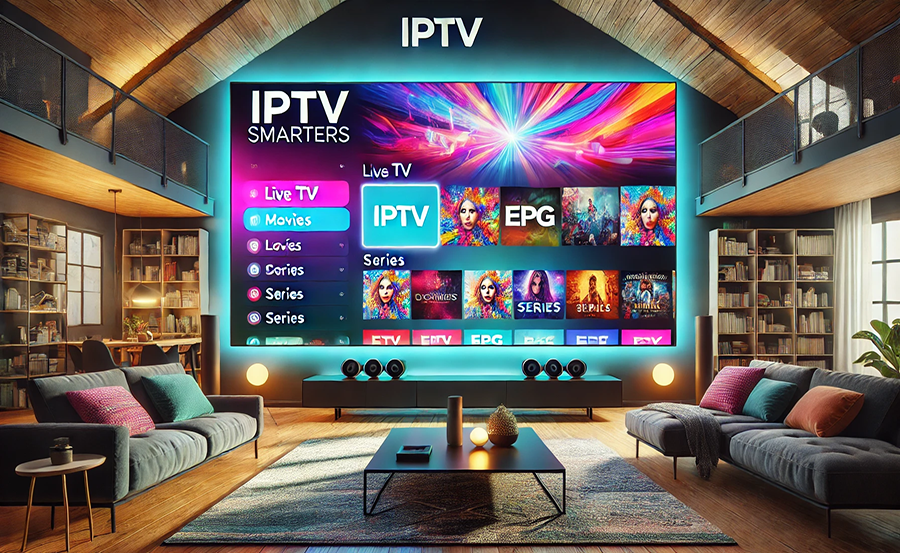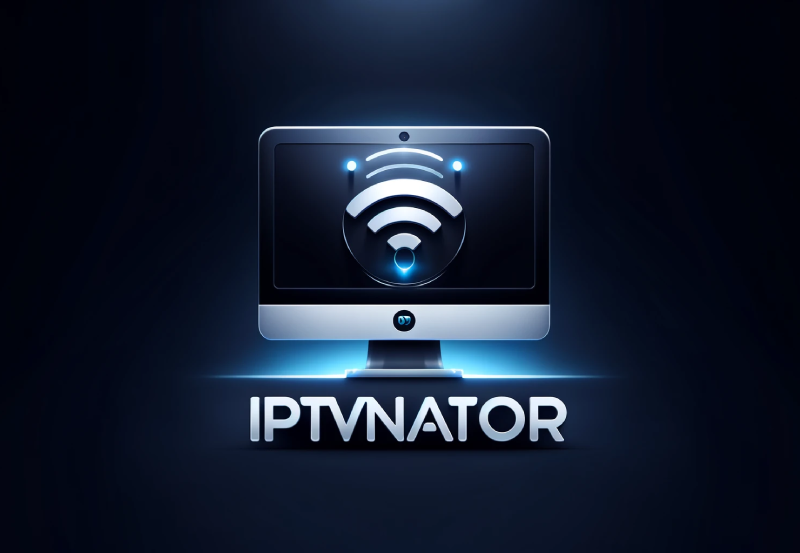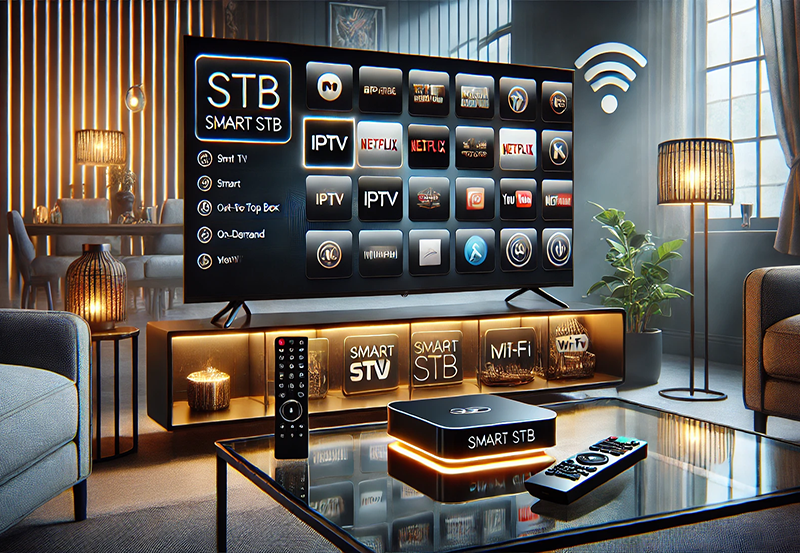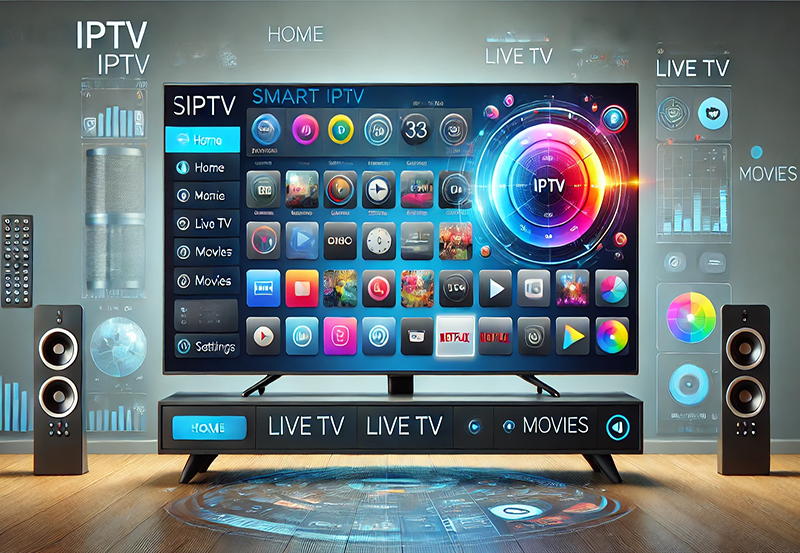The digital landscape has ushered in a wave of innovations reshaping how we consume media. One of the most notable shifts has been the increasing adoption of Internet Protocol Television (IPTV), a cutting-edge solution that leverages internet connections to deliver television content. Many are beginning to wonder if IPTV, with its promise of flexibility, variety, and cost-effectiveness, can truly replace traditional cable TV subscriptions. This article delves into the potential and nuances of this growing trend.
With the rapid advancement in internet speeds and infrastructure, IPTV has emerged as a considerable contender to cable TV. More users are intrigued by the high-quality IPTV services that promise seamless access to a plethora of channels and content, often at a lower price point. But is it all it’s cracked up to be? Let’s explore the world of IPTV and see how it stacks up against traditional cable offerings.
Understanding IPTV: The Basics
Before diving into whether IPTV can replace cable, it’s crucial to understand what IPTV is. IPTV stands for Internet Protocol Television. Unlike traditional media delivery channels like cable or satellite, IPTV uses the internet to stream digital television content. It allows users to access live TV, video-on-demand, and much more, often through apps or special IPTV providers.
Streaming Tip:
Upgrade your game day experience with IPTV Sports for live and on-demand coverage of all major leagues.
The best IPTV experience depends on both the service provider and the quality of your internet connection. With an optimized service and a solid connection, users can enjoy a wide selection of channels with excellent picture quality. But, what exactly makes IPTV a viable alternative to cable?
The Economics of IPTV vs Cable
One of the most significant advantages of IPTV over traditional cable is its affordability. Cable subscriptions can be costly, often involving multiple fees that can add up over time. With IPTV, many find they can save quite a bit while still gaining access to their favorite channels and shows.
Here’s a breakdown of some cost-related factors:
- No Extra Equipment Costs: Many IPTV services can be accessed using existing devices like smart TVs, smartphones, or streaming boxes.
- Flexible Subscription Options: IPTV providers often offer customizable plans that let you subscribe to only the channels you desire.
- Increased Competition: With numerous IPTV providers entering the market, competitive pricing ensures better deals for consumers.
User Experience and Content Variety
IPTV is not just about cost savings. Many users switch to IPTV for the sheer variety and flexibility it offers. Unlike cable that might limit your viewing to scheduled broadcasts, IPTV allows on-demand viewing, recording shows for later, and even pausing live TV—features that can significantly enhance user experience.
Let’s not forget about international content. Those with a keen interest in global channels will find high-quality IPTV services invaluable. Whether it’s accessing BBC from the US or Japanese anime directly from Japan, IPTV delivers these with ease, provided your service supports them.
Technical Considerations
While IPTV presents numerous advantages, there are technical aspects to bear in mind. A stable and high-speed internet connection is fundamental to an optimal IPTV experience. Without it, users may face buffering and poor picture quality, which can offset the benefits and lead to dissatisfaction.
Moreover, understanding the technology and setup can sometimes be challenging for those not tech-savvy. However, many providers offer user-friendly interfaces and customer support to help navigate these initial hurdles.
Potential Drawbacks of IPTV
Despite the promising features of IPTV, it’s not without its downsides. Here are some potential challenges to consider when deciding to switch from cable:
- Reliance on Internet: IPTV’s performance heavily depends on internet speed and bandwidth, which may vary.
- Legal Concerns: Not all IPTV services operate within legal boundaries, which can pose risks of service interruption.
- Channel Availability: While many services offer a wide array of channels, the availability can differ between providers, potentially limiting choices.
Weighing these factors against the benefits is crucial for potential switchers.
The Future of Television: Is IPTV the Way Forward?
As we look into the future, the question remains: will IPTV become the standard for television consumption, replacing cable entirely? There’s a strong case for it, especially as more users desire the flexibility, cost savings, and access to global content that IPTV provides.
Yet, it’s essential to acknowledge that personal preferences will always play a significant role. Some may prefer the familiarity and reliability of cable, while others embrace the evolving landscape of IPTV. It’s about choosing what works best for your individual viewing preferences and circumstances.
Conclusion: Making the Switch or Sticking with Cable?
Ultimately, deciding between IPTV and cable depends on several personal factors: one’s tech savviness, internet reliability, and content preferences. For those searching for an enhanced viewing experience, with access to diverse content and a flexible, potentially cheaper solution, IPTV might indeed be the right choice.
However, the journey doesn’t end by choosing IPTV. Selecting the right service provider and ensuring optimal setup are key for a smooth transition and satisfactory experience. Make sure to research, compare services, and maybe even test different options to find what aligns best with your needs.
FAQs

What exactly is IPTV?
IPTV stands for Internet Protocol Television, a system where television services are delivered using the internet rather than traditional satellite or cable formats.
Can I save money by switching to IPTV?
Yes, many users find that IPTV offers more affordable plans compared to traditional cable, allowing you to choose packages that fit your budget without additional equipment costs.
Is the picture quality of IPTV as good as cable?
High-quality IPTV services can provide picture quality comparable to or exceeding cable, but this largely depends on your internet speed and provider offerings.
Are there legal concerns with using IPTV?
While many IPTV services operate legally, there are providers that may bypass licensing regulations, which could result in interrupted services. It’s essential to choose a reputable provider.
Do I need special equipment for IPTV?
Most IPTV services are compatible with smart TVs, smartphones, or streaming devices, so typically no special equipment is needed if you already own these devices.
How do I choose the best IPTV service?
Researching providers, reading customer reviews, and considering the variety of channels and the reliability of service can help in selecting the best IPTV provider for your needs.
Troubleshooting Common IPTV Issues on Android Boxes with Perfect Player





